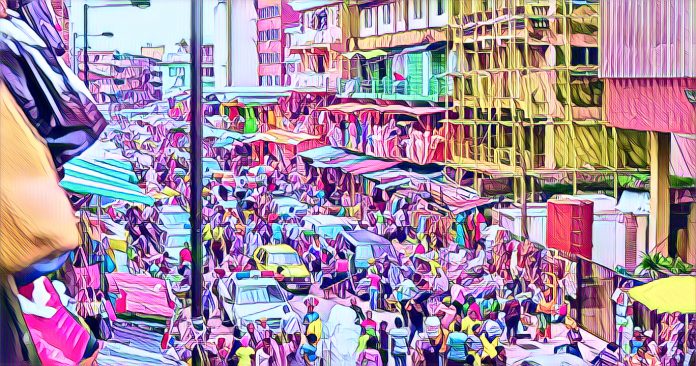Nigeria, Africa’s largest economy, recorded a slight increase in its economic growth in the third quarter of 2023, thanks to the performance of the services sector. However, the impact of the controversial fuel subsidy removal and currency devaluation by President Bola Tinubu’s administration was felt across several other sectors.
According to the National Bureau of Statistics (NBS), the country’s Gross Domestic Product (GDP) grew by 2.54 per cent (year-on-year) in real terms in Q3, up from 2.51 per cent in Q2 and 2.25 per cent in the same period last year.
The NBS said the growth was driven mainly by the services sector, which recorded a growth of 3.99 per cent and contributed 52.70 per cent to the aggregate GDP. The agriculture sector grew by 1.30 per cent, while the industry sector grew by 0.46 per cent, an improvement from -8.00 per cent recorded in Q3 2022.
However, some key sectors, such as manufacturing, trade and ICT, slowed down in Q3, reflecting the challenges of high inflation, foreign exchange scarcity and security issues that have plagued the economy.
Experts say the reforms initiated by Tinubu, who took office in May 2023, have had mixed effects on the economy. Tinubu scrapped the costly but popular fuel subsidy, which tripled the petrol price to N617 from N184, and lifted currency controls, which allowed the naira to weaken by as much as 40 per cent against the dollar.
These measures were aimed at saving the country from a looming fiscal crisis and attracting foreign investment, but they also worsened inflation, which rose to 27.33 per cent in October, the highest level in 18 years. The rising inflationary pressures have eroded the purchasing power of consumers and increased the operating costs of businesses.
The International Monetary Fund (IMF) in October downgraded Nigeria’s economic growth forecast by 0.3 percentage points to 2.9 percent for the full year 2023. The IMF said the negative effects of high inflation on consumption would outweigh the benefits of the reforms.
However, some analysts say the economy could grow slightly further in the fourth quarter, as economic players adjust to the new realities and festive spending boosts demand. They also expect the central bank to raise interest rates to curb inflation and stabilise the naira.
The government has also announced some relief measures, such as suspending the 7.5 per cent value-added tax on diesel imports and providing subsidies for mass transit buses, to ease the burden on the citizens.
Nigeria’s economy, which relies heavily on oil exports, has been struggling to recover from the twin shocks of the coronavirus pandemic and the collapse of oil prices in 2020. The country entered its second recession in five years in Q3 2020 but exited it in Q4 2020 with a modest growth of 0.11 per cent.
The country hopes to achieve a more diversified and resilient economy through the implementation of its Economic Recovery and Growth Plan (ERGP), which outlines the government’s vision and strategy for the period 2017-2023.
Source: BusinessDay



